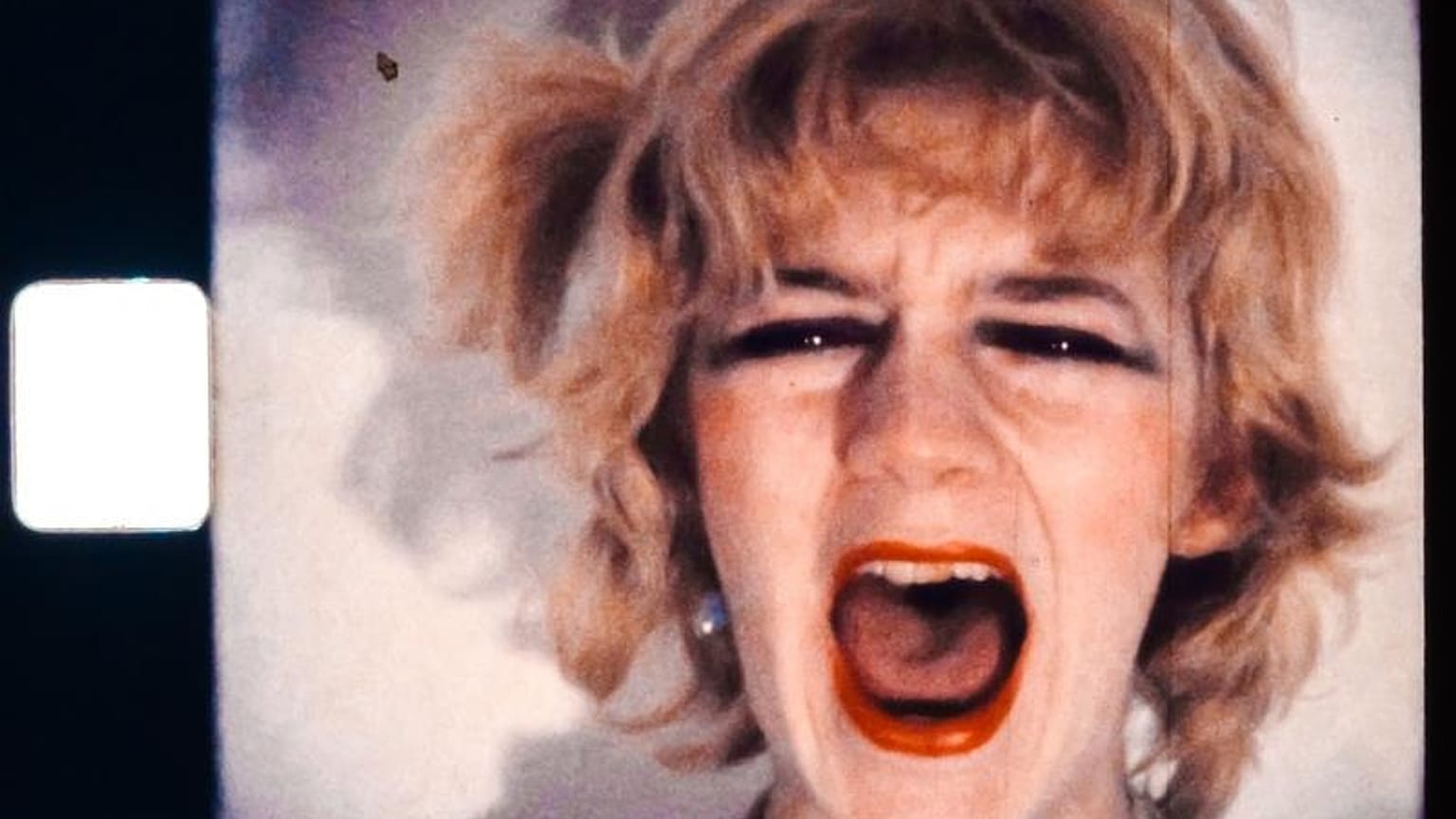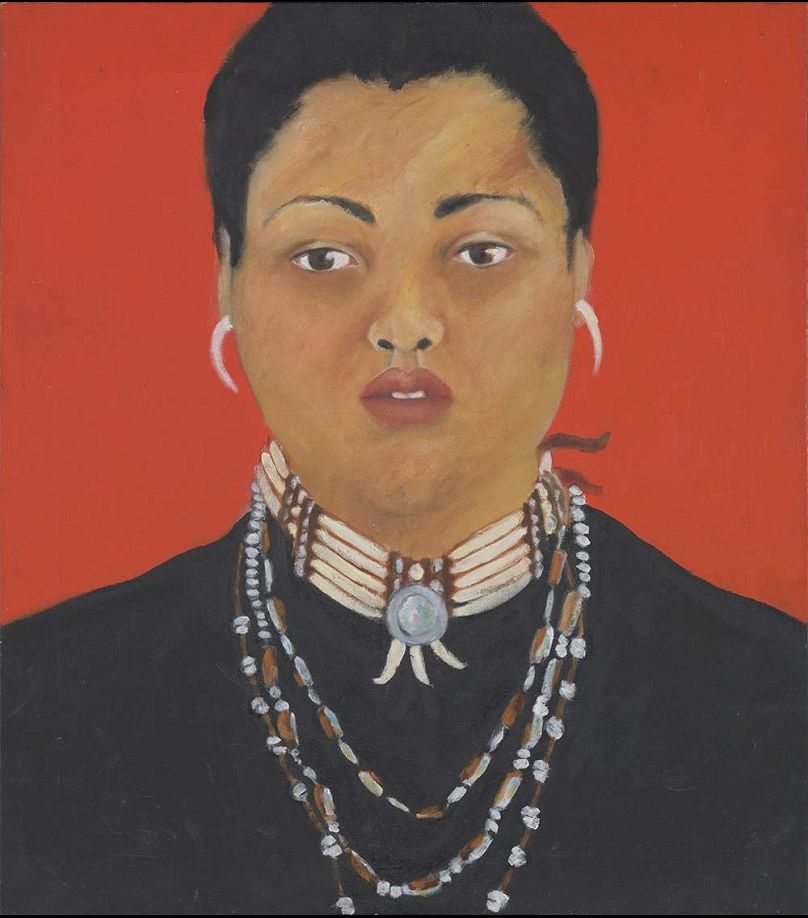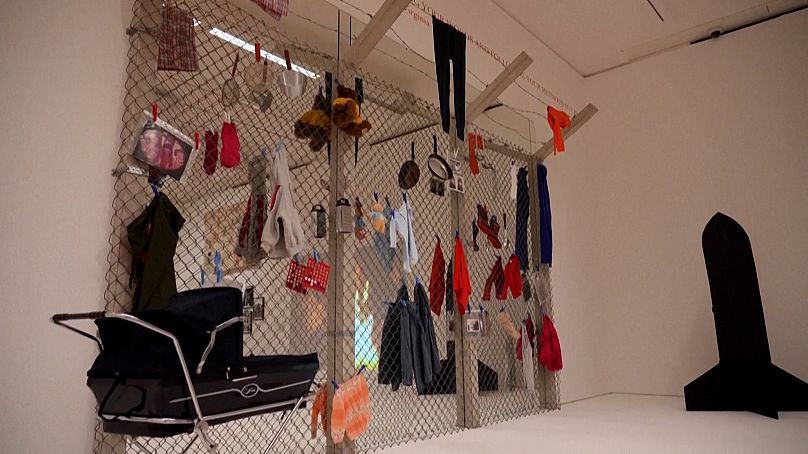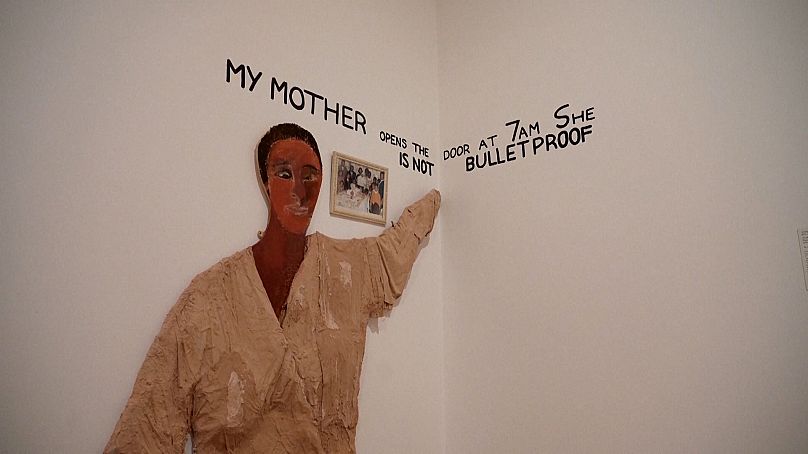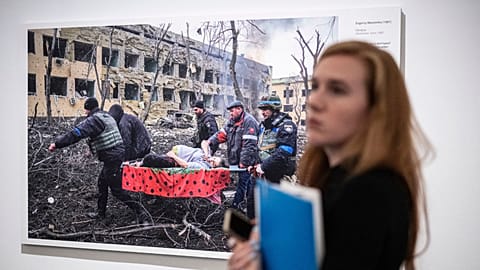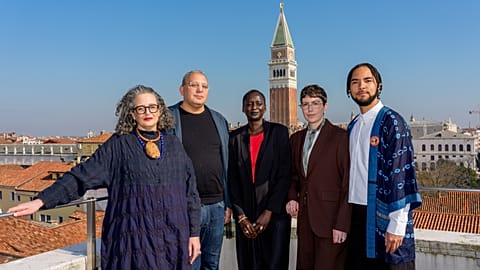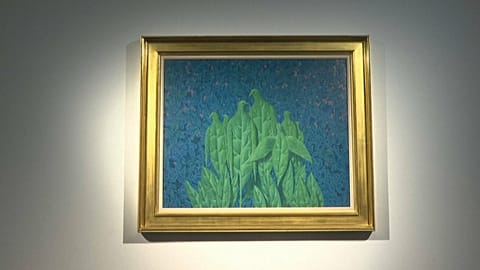From crochet to photos and life-sized installations, feminist art from the 1970s and 1980s has taken over Tate Britain in London.
Projected onto a wall is a 1977 video installation by Gina Birch, the bassist of the post-punk rock band The Raincoats, created during her time as a student at Hornsey School of Art, alongside Ana Da Silva, the band's co-founder.
 ADVERTISEMENT
ADVERTISEMENT
 ADVERTISEMENT
ADVERTISEMENT
Titled "3 Minute Scream," the piece literally embodies its name. It captures Birch's release of pent-up anger and frustration, as she yells at the top of her lungs throughout the entire duration of a Super 8 film reel.
The echoes of this piercing, rage-filled scream resound within the confines of each of the six rooms in the groundbreaking exhibition titled 'Women in Revolt' hosted at London's Tate Britain.
The show presents work by more than 100 women artists, highlighting how networks of women employed radical ideas and rebellious methods to make a significant and often overlooked contribution to British culture.
As well as celebrating the work of well-known artists such as Sonia Boyce, Susan Hiller, Chila Kumari Singh Burman and Linder, 'Women in Revolt!' provides a platform for many women who, despite having had long and impactful careers, have been largely omitted from the artistic narratives of that era.
Early feminist works
Presented chronologically, the exhibition kicks off with pivotal moments in the feminist movement, including the first women’s liberation conference in the UK, Miss World protests and the formation of the Brixton Black Women’s Group.
Daring artists such as Margaret Harrison, Penny Slinger and Monica Sjöö subverted the expected roles of women in society, while Kate Walker, Monica Ross and Su Richardson worked collectively on a postal art project, demonstrating how communities of women found ways to work collaboratively without formal infrastructure.
Many of these art pieces, which are presented in a wide variety of mediums including painting, drawing, sculpture, performance, film and photography, have not been shown since the 1970s.
"It's a very good reminder of how much women fought for their rights, their freedom, and to say something to express who they are and what they were saying there feels extremely relevant today, and I think that's quite extraordinary," says Eleonore Dresch, the editor in chief of Culture Whisper.
In "Greenham Common (Common reflections)," a major sculpture by Margaret Harrison, she recreates a portion of a military base where women held protests against nuclear weapons.
They eventually established "Greenham Common Women's Peace Camp" in 1981, which lasted until 2000.
Sculptures by Rita McGurn and Elizabeth Radcliffe also offer glamorous imagined images of the self, using techniques like crochet: often underappreciated because of its connection to domestic labour.
The exhibition closes with works made towards the end of the Thatcher administration, focusing on women’s response to Section 28, the visibility of lesbian communities, and the AIDS epidemic.
One such work, a textile banned titled "Thatcher's Thugs" by Thalia Campbell was inspired by Battle of Orgreave, a pivotal event in the 1984–1985 UK miners' strike, and one of the most violent police clashes in British industrial history.
"It's not a depressing show. I think it's a very joyful show. But one of the depressing things is that so many of the fights are still being fought. So in terms of pay equality, health quality, childcare equality, in terms of the position of people of colour in our society and the way that they are treated still by organisations and broader society more generally," explains Linsey Young, a curator of British contemporary art, at Tate Britain.
"These struggles are very current and I hope that maybe when people come to see the show, they find strategies or ways to push against those struggles that we face."
'Women in Revolt' runs until 7 April 2024.
Check out the video above for a look inside the exhibition.














